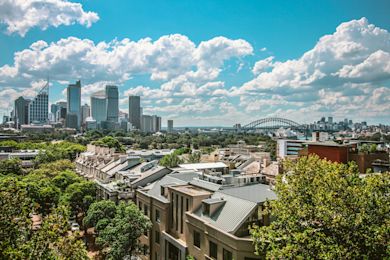- News and articles
- Events
- Find usIDP AustraliaIDP BahrainIDP BangladeshIDP CambodiaIDP CanadaIDP ChinaIDP EgyptIDP GhanaIDP Hong KongIDP IndiaIDP IranIDP JordanIDP KenyaIDP KoreaIDP KuwaitIDP LebanonIDP MalaysiaIDP MauritiusIDP Middle EastIDP NepalIDP New ZealandIDP NigeriaIDP OmanIDP PakistanIDP PhilippinesIDP Saudi ArabiaIDP SingaporeIDP Sri LankaIDP Taiwan, ChinaIDP ThailandIDP TurkeyIDP UAEIDP VietnamIDP Corporate
- Social
- English
Topics covered
- Published: 22 April 2024
Managing money abroad
One of the top struggles of students (especially international students) is saving money and trying not to spend too much. Being someone who is living and studying away from home, you should try and save as much money as possible as study abroad can be an expensive process. Having money means you are able to enjoy benefits like going out, shopping and travelling more.
There are several ways that you can save money as an international student. You may already know a few of these tips, but most of them are definitely worth keeping in mind as they will be able to help you if you’re struggling with money:
Set up a local bank account
To avoid international bank charges, it often makes sense for you to set up a bank account in your new country. Bank account charges and benefits vary, so it is important to read the fine print. Your IDP counsellor can offer you advice on leading bank accounts in your destination and give you tips on how to make sure you are set up with a reputable and cost effective option that allows you to send and receive money internationally. Read more about the service here: Bank Account Set Up.
Prepare your meals at home
Cooking food at home is a simple task that can help you save money. It can be smarter to cook your own food at your place instead of frequently eating out or ordering food to be delivered. Instead of using your budget to eat out, you can visit a market near you on a weekly basis and buy fresh ingredients at a cheap price. You may be able to cut down your food budget by 30 – 50% by avoiding eating take-away food. By saving the money you would have spent on eating out, you may be able to prepare and cook enough for several meals and use that money for more important things in your abroad experience.
As a student, you may not have time to always cook, so a smart option is to choose to cook in large quantities and keep extra meals in the fridge for reheating when you need to. This way, you don’t have to cook every day. While cooking and preparing your own meals at home may be time-consuming and tiring, it can help you save more money and is usually a much healthier option.
Take advantage of your student status
Using your student card may make you available for discounts not only for transportation but also for restaurants, shops, movie tickets and tourism events. You just need to organise to receive your student card at the beginning of your first study abroad semester so you’re available for these discounts as soon as you start semester. Transportation discounts will also help you save hundreds of dollars yearly! There are some websites dedicated to offering student vouchers and discounts, so make sure you check them out. Sometimes they even point you towards birthday rewards!
Choose social activities wisely
This means that you should be careful with doing things that might add up to a lot of money in the long-run. If you always hang around friends who love to go out, eat out and go shopping whenever they feel like it, you may end up blowing your budget before the end of your trip. Don’t be ashamed to say no to certain social events, or suggest a more affordable alternative. If you explain to people that you are on a travelling budget, they will usually understand that you cannot always spend a lot of money.
Let your city entertain you
When you are in a new country, there are hundreds of fun and exciting places that you can visit that don’t cost too much. You can always look up places on the internet that are free or cheap to visit. For example, there are museums and exhibits that are open to everyone. You can also always check online for promos and deals that you will be able to enjoy at discounted prices.
Being able to save up money is a great thing, but you also have to keep in mind that there is nothing wrong with rewarding yourself every once in a while for all the hard work you have put into saving. It isn’t the “end of the world” to spend money every now and then, especially as a reward to yourself for studying hard. You just should remember to keep it under control and always try to have money saved up for emergencies and other future expenses.
One account for all your study abroad needs
Create your profile and unlock a wide array of features including personalised recommendations, fast-tracked applications and much more.
Search for articles
Dive into our extensive collection of articles by using our comprehensive topic search tool.















